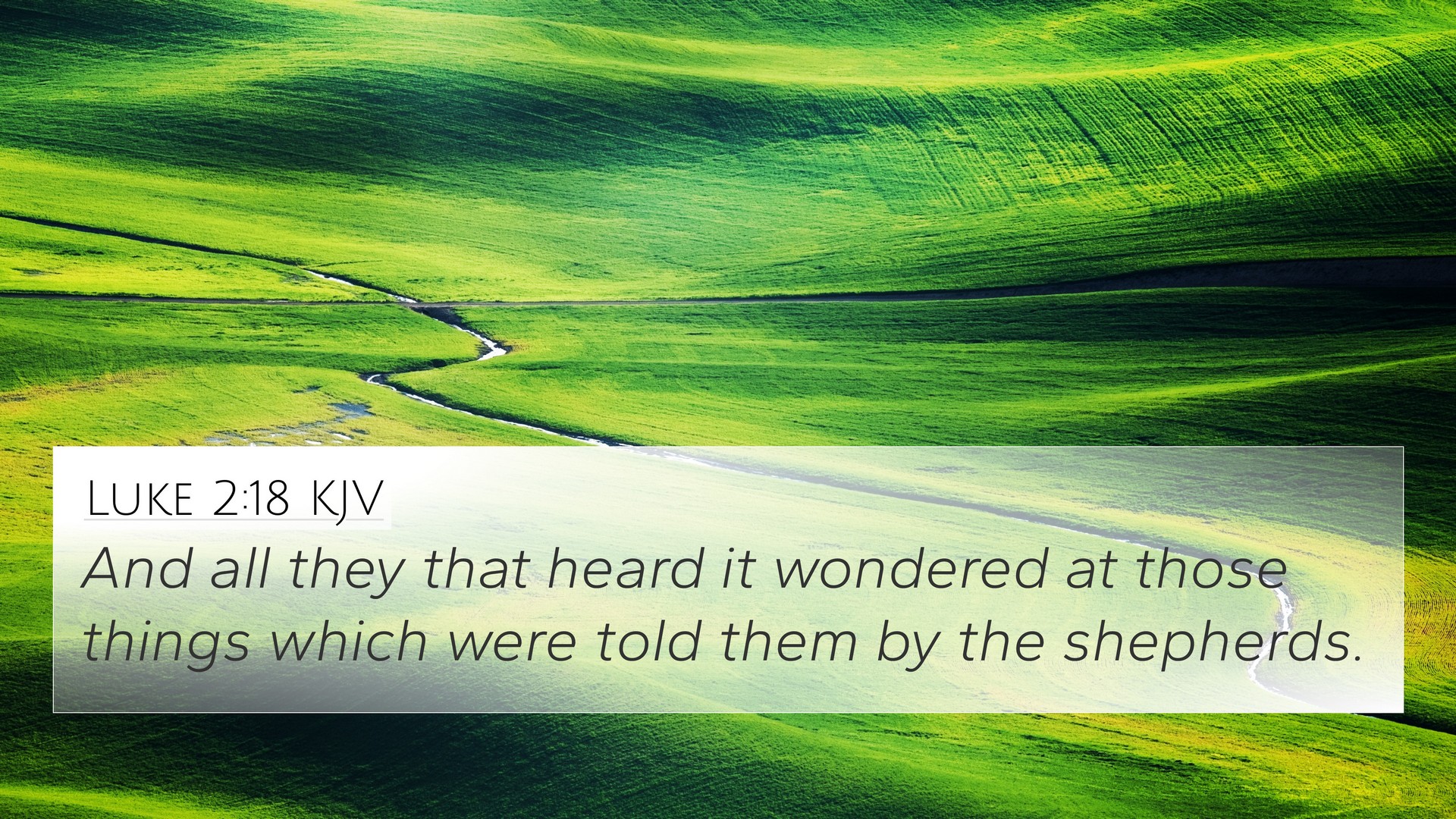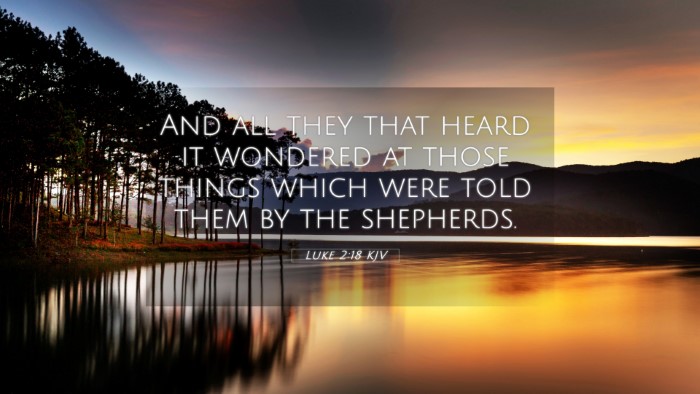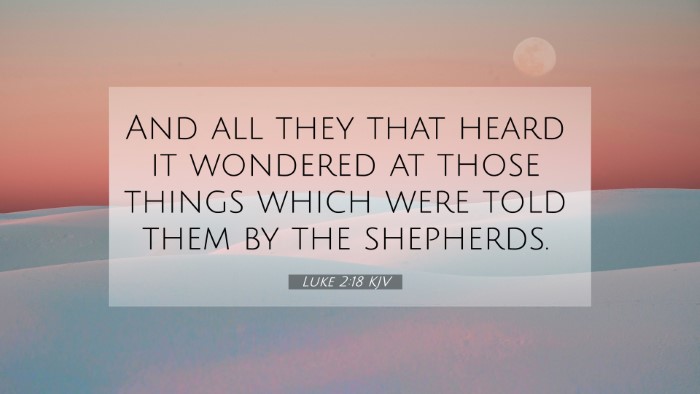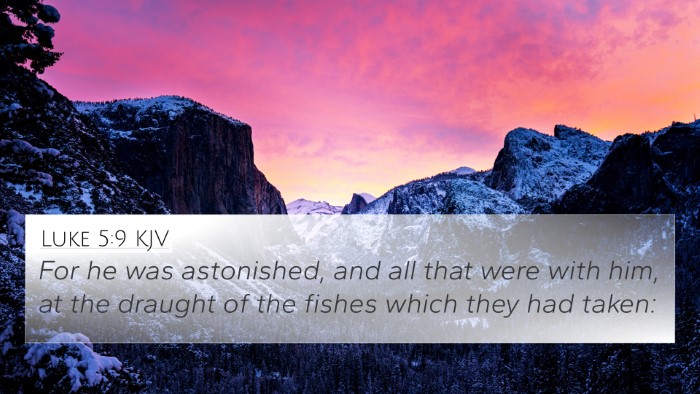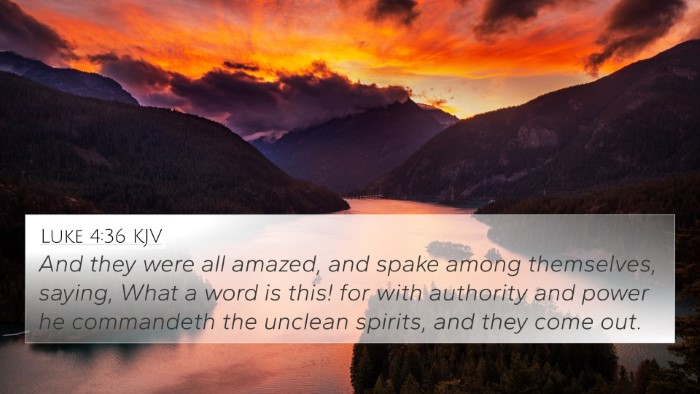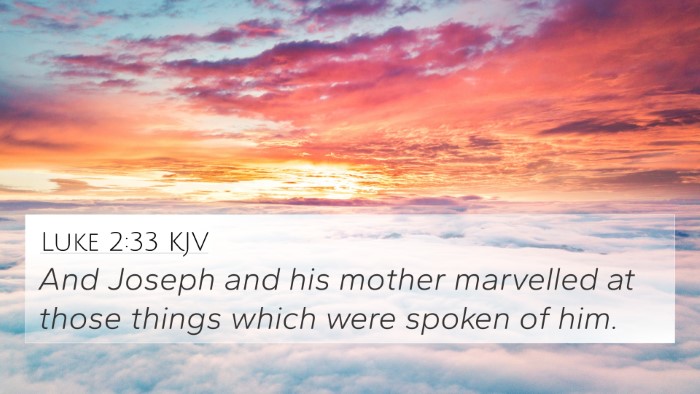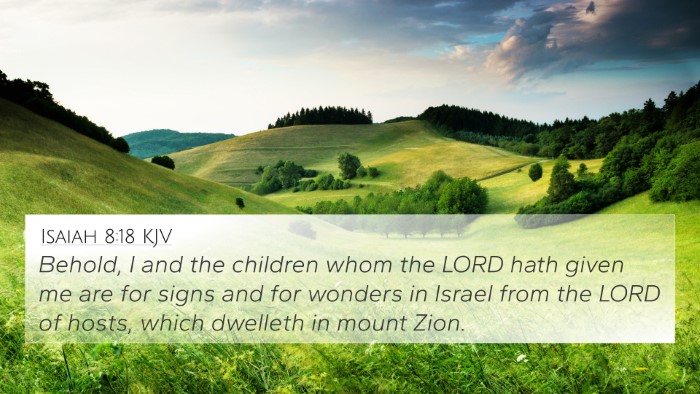Understanding Luke 2:18
Luke 2:18 states, "And all they that heard it wondered at those things which were told them by the shepherds." This brief yet profound verse captures the reaction of those who heard the shepherds' account of Jesus' birth. To understand this verse deeply, we can draw insights from several public domain commentaries, including Matthew Henry, Albert Barnes, and Adam Clarke.
Contextual Analysis
This verse is set in the context of the nativity story, where a group of humble shepherds is visited by angels who proclaim the birth of the Savior. Their journey to Bethlehem to witness this miraculous event culminates in sharing this news, leading to the wonder expressed in this verse.
The significance of 'wonder'
All three commentators emphasize the significance of the word "wondered." According to Matthew Henry, it reflects a profound sense of amazement and astonishment, suggesting that the news of Christ's birth was unlike any other. Albert Barnes adds that this wonder may stem from the extraordinary circumstances surrounding the event, including the humble means through which the Messiah was revealed.
Responses to divine revelations
Adam Clarke elaborates on the human response to divine revelation. The shepherds' testimony stirred curiosity and awe among the people, highlighting that the announcement of Jesus' birth was not just a private affair but a public proclamation meant to evoke a reaction of faith and wonder.
Biblical Cross References
Understanding Luke 2:18 is enriched by exploring related Bible verses. Below are key cross-references that illustrate similar themes or contexts:
- Luke 2:10-11: The angel’s proclamation: "behold, I bring you good tidings of great joy." This sets the stage for the wonder expressed in verse 18.
- Matthew 1:20-21: An angel appears to Joseph, emphasizing the miraculous nature of Christ's birth, which also leads to wonder.
- Isaiah 9:6: Prophecy of the Messiah's birth underscores the significance of Christ's arrival.
- Luke 1:76-79: Zechariah's prophecy reflects the anticipation and joy of God’s plan unfolding.
- John 1:14: "The Word became flesh," connects to the overarching narrative of Jesus' incarnation and its impact on the world.
- Luke 24:19: The description of Jesus as "a prophet mighty in deed and word" echoes the wonder seen at His birth.
- Matthew 2:10: The Magi's joy in seeing the star reinforces the theme of amazement surrounding Christ’s arrival.
- Acts 2:12: The response to the apostles’ miracles parallels the astonishment felt at the shepherds' report.
- Revelation 12:1-5: The vision of the Woman and the Dragon relates to the birth of Christ and the wonder associated with His mission.
- Hebrews 2:14-15: Highlights the significance of Jesus' incarnation, which brings salvation and awe.
Connections Between Bible Verses
The thematic connections between these verses provide a rich tapestry of meaning in the biblical narrative surrounding the birth of Christ. Each verse offers a layer of understanding about the significance of Jesus’ coming, the fulfillment of prophecies, and the transformation of the human experience through divine intervention.
Thematic Bible Verse Connections
The reactions of wonder and awe throughout the nativity account invite believers to reflect on their own responses to the birth of Christ. The shepherds represent the marginalized yet chosen witnesses of God's grace, which resonates through other biblical texts showcasing ordinary individuals called to extraordinary purposes.
Tools for Bible Cross-Referencing
For those seeking to study the Bible and understand the connections between verses, employing tools such as a Bible concordance or a Bible cross-reference guide can enhance the study experience. These resources provide comprehensive insights into how various scriptures relate to one another, allowing for deeper understanding and appreciation of the text.
Conclusion
In conclusion, Luke 2:18 encapsulates the wonder and amazement surrounding the birth of Jesus. Through insights from notable commentaries and a focus on cross-referencing Bible verses, one can gain a more profound appreciation for this significant moment in biblical history. This verse not only serves as a factual report but also invites readers into a transformative moment of realization regarding the nature of Jesus and His mission.
